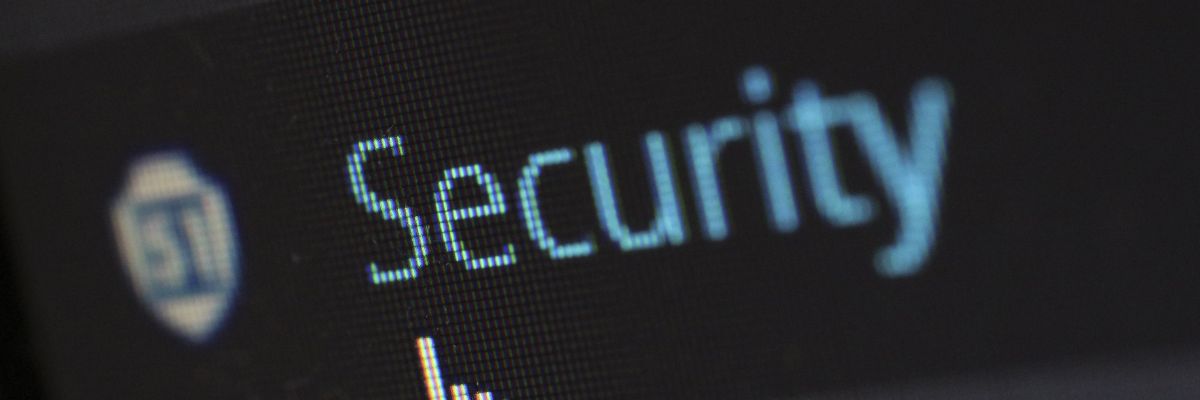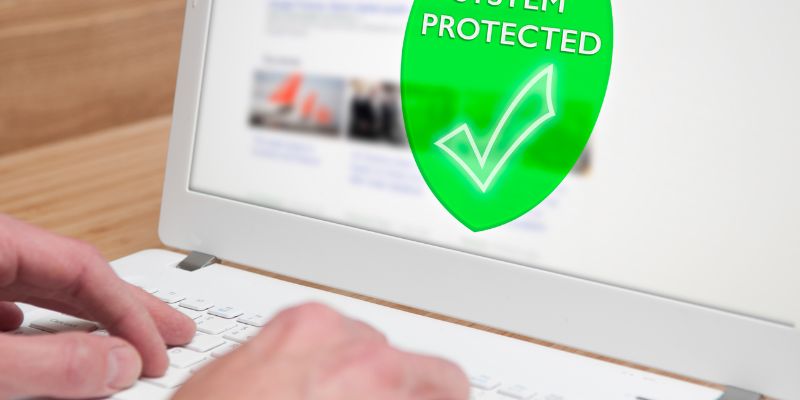In the era of digital banking, having your bank app hacked is a common but devastating occurrence. The convenience of managing finances through mobile applications comes hand in hand with the looming threat of cyberattacks. As technology advances, so do the capabilities of hackers who exploit vulnerabilities in mobile banking apps.
This article explores the potential risks associated with mobile banking app hacking. How do you identify if your bank app has been hacked, and what does this mean for your bank account? And, most importantly, how can you fortify your financial security? By discussing these crucial details, you will be able to manage your hacked bank app more efficiently.
The short answer is yes: mobile banking apps can be hacked. While banks employ stringent security measures, hackers continually refine their methods to exploit weaknesses. Standard hacking methods include,
In a phishing attack, hackers craft seemingly legitimate messages or websites that mimic the appearance of official communication from a bank. These deceptive messages often prompt users to disclose sensitive information, such as usernames, passwords, or personal identification details.
Malicious software is designed to infiltrate the user's device through a deceptive app, compromised website, or even seemingly harmless downloads. Once embedded, this malware can operate covertly, providing unauthorized access to sensitive information stored on the device.
Unlike more technical methods, social engineering exploits the inherent human tendency to trust and socialize. This may involve impersonating a trusted entity, such as a bank representative, and using persuasive tactics to coax users into revealing sensitive data.
Detecting a hacked bank app requires vigilance and a keen eye for unusual activities. Keep an eye out for the following signs:
Regularly monitoring your transaction history is fundamental to avoiding a hacked bank app. Unexplained or unauthorized transactions can be alarming signs that your account may have fallen victim to a security breach. It is crucial to scrutinize your monthly statements, keeping an eye out for any unfamiliar or suspicious activities.
A sudden inability to access your bank account due to altered passwords or contact information is a red flag indicating your bank app has been hacked. When hackers gain control of an account, one of their primary objectives is often to change login credentials to block the account owner's access.
Keeping a vigilant eye on the overall behavior of your bank account is essential for detecting potential security breaches. Be attentive to irregularities such as unexpected login attempts, alterations to devices linked to your account, or changes to security settings. Unusual account behavior may indicate that someone has gained unauthorized access to your account unauthorized. Many banks provide notifications for such activities, and it is advisable to set up alerts to receive real-time updates. Recognizing these red flags promptly allows you to take immediate action, securing your account before more significant damage occurs.
Unsolicited emails or messages, especially those claiming to be from your bank and requesting personal information, should be met with a high degree of skepticism. Legitimate banks rarely, if ever, ask for sensitive information such as passwords or account details via email or text. These phishing attempts could lead to your mobile banking app being hacked.

If you find your bank app hacked, hackers will inevitably swiftly access your bank accounts as well. These apps are attractive targets for hackers due to the potential for quick access to funds. If your cash app is hacked, these consequences may follow:
Hackers who gain access to your cash app often exploit this access to initiate unauthorized transactions. These transactions involve the transfer of funds from your hacked bank app to accounts controlled by the attackers. The aim is to siphon off funds discreetly, taking advantage of the seamless transaction capabilities of cash apps. Users may only become aware of these unauthorized transactions when reviewing their account statements, by which time you might have lost a significant amount of money.
Having your U.S. bank app hacked goes beyond the immediate financial repercussions; it poses a significant risk to your personal information. Infiltrating a cash app gives hackers access to sensitive data linked to your financial accounts. This can include details such as your name, address, email, and potentially even more critical information like Social Security numbers. The theft of this personal information could lead to identity theft. In this case, malicious actors may use your credentials to engage in fraudulent activities, create new financial accounts, or compromise your digital identity.
A hacked bank app doesn't just jeopardize the funds within that specific
platform; it has broader implications for your overall financial security. A hacked mobile banking app can be a gateway for hackers to access other financial services or accounts linked to your identity. This can lead to difficulty accessing loans, credit, or other financial services. The fallout from a compromised cash app can cascade, impacting your credibility and creating obstacles in your financial dealings with all institutions to which you've given your account information. The time and effort required to restore your financial security after such an incident can be substantial, emphasizing the importance of robust preventive measures.
Safeguarding your mobile banking app is crucial to prevent financial loss and protect your personal information. Implement the following measures to enhance your bank app's security:
Multi-factor authentication (MFA) is a robust security measure that significantly lessens the possibility of your banking app being hacked. MFA adds a layer of complexity for potential attackers by requiring multiple forms of verification beyond the traditional password. This includes verification from fingerprints, facial recognition, or temporary codes sent to your registered device. This means that even if a hacker manages to obtain your password, they would still need another form of authentication to gain access. MFA is a powerful deterrent, making it considerably more challenging for unauthorized individuals to breach your account and ensuring higher security.
Keeping your mobile banking app up to date is crucial for preventing a hacked bank app. App developers frequently release updates that include the latest security features, bug fixes, and patches to address vulnerabilities. Regularly updating your app ensures that you benefit from the most current defenses against evolving cyber threats. Ignoring updates may leave your app susceptible to exploitation by hackers who target outdated versions. This emphasizes the importance of staying proactive in maintaining the security of your mobile banking experience.
The strength of your password is a fundamental component of your digital security. Creating a robust and unique password involves combining uppercase and lowercase letters, numbers, and symbols. Avoid using easily guessable information, such as birthdays or names, as this can make your password vulnerable to brute-force attacks. Using a unique password for your mobile banking app, distinct from passwords used elsewhere, adds an extra layer of security. Regularly updating your passwords and avoiding common patterns enhance your overall protection against unauthorized access.
Regularly reviewing your transaction history and account settings is a proactive approach to detecting any suspicious activities promptly. By keeping a close eye on your account, you can identify and report unauthorized transactions or suspicions of a hacked bank app. Many banking apps offer real-time transaction notifications, providing an additional layer of awareness. Timely detection allows you to take immediate action, notifying your bank and implementing security measures to prevent further compromise of your account.
Phishing remains a prevalent method for hackers to gain access to sensitive information. Exercise caution when receiving emails, messages, or links claiming to be from your bank. Verify the legitimacy of such communications directly with your bank through trusted channels rather than clicking on potentially malicious links. Awareness and skepticism can be powerful tools in preventing a hacked bank app, ensuring that you do not unknowingly disclose sensitive information to unauthorized parties.
Utilizing reputable antivirus and anti-malware software on your mobile device is a proactive measure to protect against the possibility of your bank app being hacked. These security applications act as a shield, scanning for and preventing the installation of malware or other malicious programs that could compromise the security of your device and, by extension, your mobile banking app. Regularly updating this security software ensures that you remain guarded against emerging threats in the ever-evolving landscape of cyberattacks.
The convenience of mobile banking comes with the responsibility of ensuring the security of your financial information. While the threat of hacking is ever-present, proactive measures can significantly reduce the risk of falling victim to such attacks. By staying vigilant and using secure and safe practices, you can fortify your defenses and enjoy the benefits of digital banking without compromising your financial security. Remember, the key to avoiding a hacked bank app lies in your hands.

By Eleanor/May 11, 2024

By Eleanor/Apr 08, 2024

By Frederica/Feb 10, 2025

By Lucy Lee/Apr 13, 2024

By Triston Martin/Mar 29, 2024

By Alice Ellis/Feb 17, 2024

By Lucy Lee/Apr 28, 2024

By Elva Flynn/Sep 27, 2024

By Pamela Andrew/Jun 25, 2025

By Lucy Lee/Feb 28, 2024

By Triston Martin/Oct 29, 2024

By Peter Evans/Apr 08, 2024